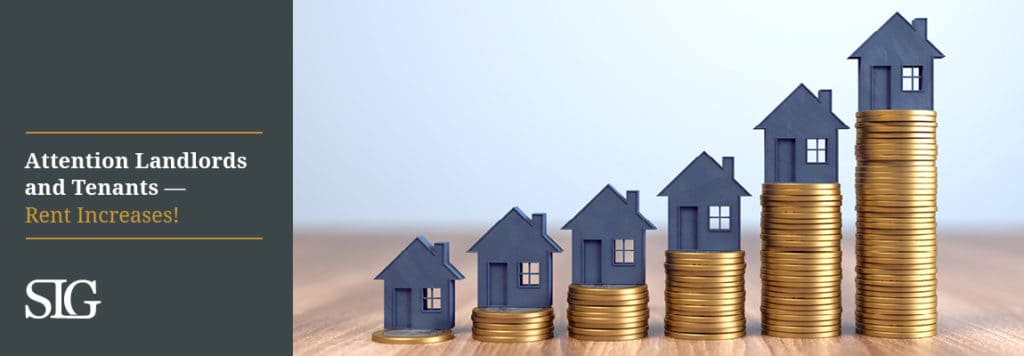
13 Sep What Landlords and Tenants Need to Know About Rent Increases
As many of you are aware, there are limits on rent increases for existing tenants in a residential rental unit. Each year, the Provincial Government advises on the maximum allowable rent increase in a given calendar year. The maximum increase in 2016 was 2.9%, 2017 is 3.7% and it has recently been announced that 2018 will be 4.0%. Note that this only applies to existing tenants. When a unit becomes vacant, there is no restriction on the amount of rent that a landlord can charge the new tenants.
Before increasing the rent, a landlord must also provide the tenant with three-months’ notice of the increase using a form prepared pursuant to the Residential Tenancy Act.
The Government has also created a calculator which not only advises how much rent can be increased, but also when and how much notice is required.
It should also be noted that a landlord can only increase the rent for an existing tenant once per 12-month period, regardless of whether the property has been sold and the landlord has changed. In other words, a new landlord cannot increase an existing tenant’s rent if the previous landlord had already increased the tenant’s rent within 12 months from the time that the new landlord acquired the property.
Further, if you are thinking of purchasing a rental property, check out our prior blog post on common costs incurred when purchasing property.
If you have any questions, please do not hesitate to contact us. Victoria Lawyers, Sitka Law Group is located in Victoria, B.C., near the border of Saanich and Oak Bay.



